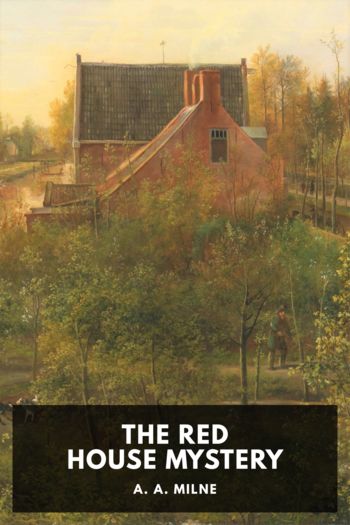Short Fiction - Edgar Allan Poe (book reader for pc .TXT) 📗

- Author: Edgar Allan Poe
Book online «Short Fiction - Edgar Allan Poe (book reader for pc .TXT) 📗». Author Edgar Allan Poe
The atrocity of this murder (for it was at once evident that murder had been committed), the youth and beauty of the victim, and, above all, her previous notoriety, conspired to produce intense excitement in the minds of the sensitive Parisians. I can call to mind no similar occurrence producing so general and so intense an effect. For several weeks, in the discussion of this one absorbing theme, even the momentous political topics of the day were forgotten. The Prefect made unusual exertions; and the powers of the whole Parisian police were, of course, tasked to the utmost extent.
Upon the first discovery of the corpse, it was not supposed that the murderer would be able to elude, for more than a very brief period, the inquisition which was immediately set on foot. It was not until the expiration of a week that it was deemed necessary to offer a reward; and even then this reward was limited to a thousand francs. In the meantime the investigation proceeded with vigor, if not always with judgment, and numerous individuals were examined to no purpose; while, owing to the continual absence of all clue to the mystery, the popular excitement greatly increased. At the end of the tenth day it was thought advisable to double the sum originally proposed; and, at length, the second week having elapsed without leading to any discoveries, and the prejudice which always exists in Paris against the Police having given vent to itself in several serious émeutes, the Prefect took it upon himself to offer the sum of twenty thousand francs “for the conviction of the assassin,” or, if more than one should prove to have been implicated, “for the conviction of any one of the assassins.” In the proclamation setting forth this reward, a full pardon was promised to any accomplice who should come forward in evidence against his fellow; and to the whole was appended, wherever it appeared, the private placard of a committee of citizens, offering ten thousand francs, in addition to the amount proposed by the Prefecture. The entire reward thus stood at no less than thirty thousand francs, which will be regarded as an extraordinary sum when we consider the humble condition of the girl, and the great frequency, in large cities, of such atrocities as the one described.
No one doubted now that the mystery of this murder would be immediately brought to light. But although, in one or two instances, arrests were made which promised elucidation, yet nothing was elicited which could implicate the parties suspected; and they were discharged forthwith. Strange as it may appear, the third week from the discovery of the body had passed, and passed without any light being thrown upon the subject, before even a rumor of the events which had so agitated the public mind, reached the ears of Dupin and myself. Engaged in researches which absorbed our whole attention, it had been nearly a month since either of us had gone abroad, or received a visitor, or more than glanced at the leading political articles in one of the daily papers. The first intelligence of the murder was brought us by G⸺, in person. He called upon us early in the afternoon of the thirteenth of July, 18—, and remained with us until late in the night. He had been piqued by the failure of all his endeavors to ferret out the assassins. His reputation—so he said with a peculiarly Parisian air—was at stake. Even his honor was concerned. The eyes of the public were upon him; and there was really no sacrifice which he would not be willing to make for the development of the mystery. He concluded a somewhat droll speech with a compliment upon what he was pleased to term the tact of Dupin, and made him a direct, and certainly a liberal proposition, the precise nature of which I do not feel myself at liberty to disclose, but which has no bearing upon the proper subject of my narrative.
The compliment my friend rebutted as best he could, but the proposition he accepted at once, although its advantages were altogether provisional. This point being settled, the Prefect broke forth at once into explanations of his own views, interspersing them with long comments upon the evidence; of which latter we were not yet in possession. He discoursed much, and beyond doubt, learnedly; while I hazarded an occasional suggestion as the night wore drowsily away. Dupin, sitting steadily in his accustomed armchair, was the embodiment of respectful attention. He wore spectacles, during the whole interview; and an occasional signal glance beneath their green glasses, sufficed to convince me that he slept not the less soundly, because silently, throughout the seven or eight leaden-footed hours which immediately preceded the departure of the Prefect.
In the morning, I procured, at the Prefecture, a full report of all the evidence elicited, and, at the various newspaper offices, a copy of every paper in which, from first to last, had been published any decisive information in regard to this sad affair. Freed from all that was positively disproved, this mass of information stood thus:
Marie Rogêt left the residence of her mother, in the Rue Pavée St. Andrée, about nine o’clock in the morning of Sunday June the twenty-second, 18—. In going out, she gave notice to a Monsieur Jacques St. Eustache,33 and to him only, of her intent intention to spend the day with an aunt who resided in the Rue des Drômes. The Rue des Drômes is a short and narrow but populous thoroughfare, not far from the banks of





Comments (0)